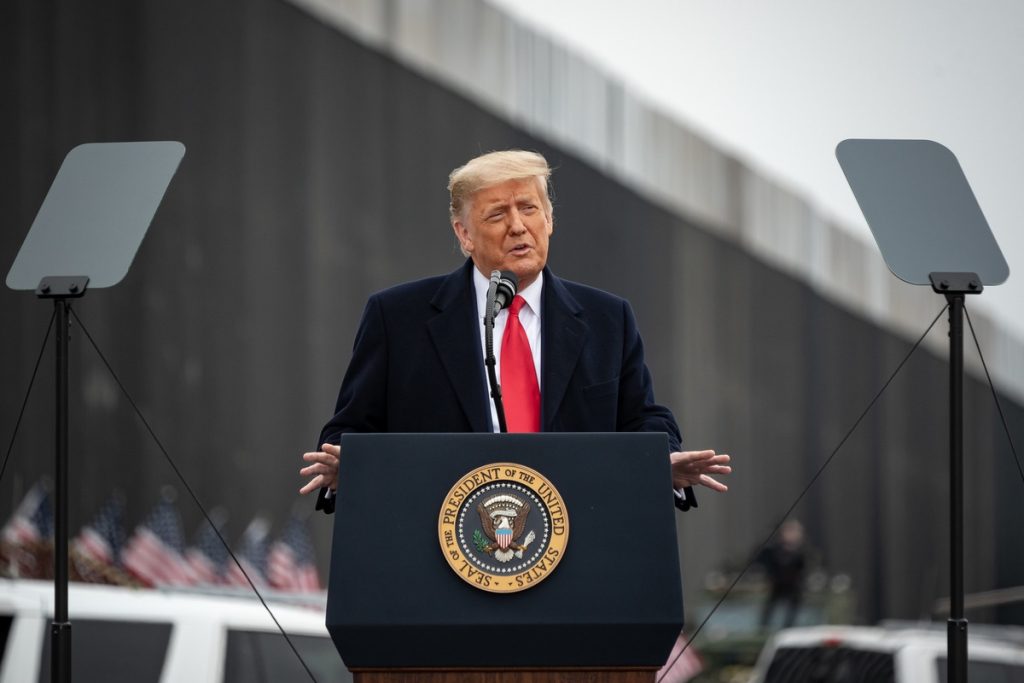Summarize this content to 2000 words in 6 paragraphs
Donald Trump’s return to the White House had many travel executives wondering what a second Trump administration would mean for the industry, a subject we explored in one of Skift’s 2025 Megatrends.
So, as Trump has already issued a set of executive orders that could significantly impact travel, we turned to our answer engine, Ask Skift 2.0, to find out more about the ramifications of those orders for the industry. We also did additional reporting on the topic.
What Ask Skift Said
The Trump Administration’s recent actions and executive orders may have significant implications for the travel industry. President Trump’s policies are expected to impact several key areas:
Tighter Border Controls: The administration is signaling a shift towards more stringent cross-border controls, which could lead to longer wait times for visas and increased scrutiny for travelers. This might dampen demand for U.S.-bound trips and affect both corporate and leisure travel.
Federal Hiring Freeze: A hiring freeze, excluding positions related to national security and public safety, could lead to staff shortages in travel-related federal roles. This may result in longer processing times for passports and visas, potentially discouraging inbound tourism.
Enhanced Vetting and Travel Ban: Trump is considering reintroducing a travel ban similar to the one from 2017, which targeted several Muslim-majority nations. Such moves could affect international relations and perceptions of the U.S., impacting tourism from affected regions.
Trade Policies: New trade directives could lead to higher import costs and potential retaliatory measures affecting the travel sector’s supply chains, possibly increasing costs for travelers and in the hospitality sector.
Environmental and Health Policies: The decision to withdraw from the Paris Agreement and the World Health Organization may influence the appeal of the U.S. to eco-conscious travelers and those concerned about global health issues. This could potentially decrease inbound tourism and affect how U.S. destinations market themselves globally.
TikTok Ban Delay: The delay in enforcing a ban on TikTok allows travel marketers and creators to continue using the platform for promotion, crucial for reaching a wide audience.
Gender Marker Policy: The ban on the ‘X’ gender marker on passports could affect non-binary and transgender travelers, influencing decisions about visiting the U.S., especially for events like World Pride 2025.
Overall, these policies suggest a shift towards more isolationist and protectionist measures, which could pose challenges to an industry reliant on open borders and international goodwill. The travel industry may need to adapt marketing strategies and operational practices to cope with these changes.
What Else You Need to Know
Stricter Visa Regulations: During the first Trump administration prior to the pandemic, the number of visitor visas issued saw a steady decline — from 6.3 million in 2017 to 5.4 million in 2019, according to the State Department.
One concern would be a return to more restrictive visa policies, which could slow down the U.S. tourism boom as the country is on the pace to attract 90 million visitors by 2026, a year ahead of schedule. In addition, stricter visa regulations could complicate many overseas fans’ efforts to attend the 2026 FIFA World Cup, which the U.S. will co-host with Canada and Mexico.
Going Easier on Business: The Biden administration took a tough stance on mergers and business practices. Biden’s Transportation Secretary Pete Buttigieg told Skift earlier this month he wanted to ensure healthy competition in the airline industry.
In addition, the Biden administration’s practices of levying hefty fines and imposing strict rules for airlines may not be commonplace in the second Trump administration. Airlines Reporter Meghna Maharishi wrote Republicans in Congress have started to rethink the Federal Aviation Administration’s approach to punishing companies like SpaceX, which the FAA fined $633,009 for violating the terms of its launch licenses on two separate occasions.
Hotels Could See Tax Cuts: Trump campaigned on extending key business tax provisions in the Tax Cuts and Jobs Act of 2017 that were set to expire by the end of the year. Two hotel industry representatives told Skift this month that businesses could see a 33% tax increase if the provisions expire.
The two representatives said they hope the Trump administration makes a 20% deduction for small businesses on income from business operations permanent. More than half of the country’s nearly 64,000 hotels are classified as small businesses, according to the American Hotel & Hotel Lodging Association.
Sustainability Concerns: Marie Owens Thomsen, chief economist for airline trade body IATA, told Reuters that Trump’s return to the White House could put the expansion of sustainable aviation fuel at risk. Trump has vowed to repeal the 2022 U.S. Inflation Reduction Act, which included tax credits for green jet fuels.
Trump has already signed an executive order withdrawing from the Paris Agreement, which he threatened to do prior to taking office. But as most U.S. travel businesses support the goals of the Paris Agreement, which encourages members to reduce emissions from travel and tourism by 50% in a decade and to reach net zero by 2050, there have been no requests among companies in the travel industry to exit the pact.















